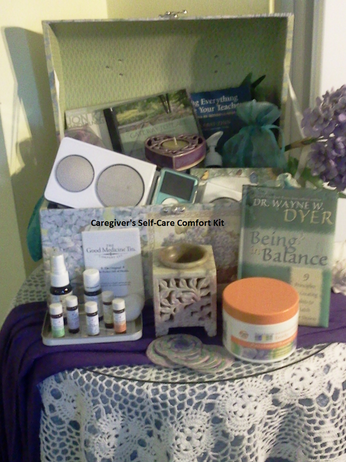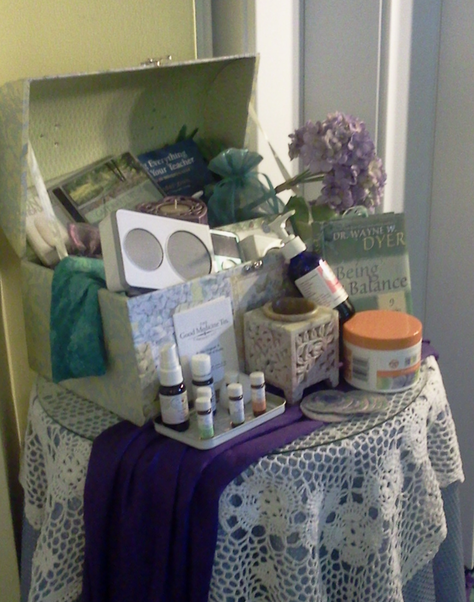|
9/21/2015 Today is World Alzheimer's Day - remember those who forget and how to avoid becoming one of themI just read an article published in The Guardian, titled "One Third of People Born in 2015 Will Develop Dementia" and I felt a shiver go through me - a mix of disbelief, dread and then a goodly portion of righteous anger. I think every single human with a beating heart who looks at the statistics, those cold, easy to ignore numbers, and applies them to the babies being born now can't help but cry out that we ALL need to do more to address this health crisis. There is a virtual tsunami of dementia coming if we don't find ways to stop it. It will swamp our healthcare system and there will be no where to escape it.
Research is, of course, necessary, and finally receiving some significant attention. But we can do more than that. Those who are children or caregivers of parents/elders with dementia know personally the devastating consequences that it can bring -- emotional, financial, in family relationships, in health of the caregiver. So, that multiplies the shivers by quite an exponential factor. The truth is, there is almost NO one who is untouched by Alzheimer's in some way: whether it be a parent or grandparent, spouse, aunt or uncle, cousin or friend who is losing their personality and memory in excruciating pieces. Julianne Moore recently put a spotlight on the early-onset form of Alzheimer's in her award-winning performance in the film "Still Alice". And there are various groups vying for funds to support the cause in various ways. But I want to talk about what is within our power, each of us, as individuals, to defeat this disease. There's actually quite a lot that we CAN do, aside from shivering in disbelief. Here are some of the most important, scientifically supported ways you can reduce your own risk of developing Alzheimer's disease:
I'm going to stop here, though I could go on at length. The information is here, on this website and many others. I really implore you all to take your power back and act on that which you CAN control. Type II diabetes is at epidemic proportions, and this is something we can treat and reverse. So today, in honor of World Alzheimer's Day, won't you make a commitment to your own health and happiness by taking some steps to avoid Alzheimer's yourself? Do it for your own benefit and also for those who love and depend on you. Do it for your children to set a good, healthy example for them so they don't become one of the three people who will develop dementia. Whatever reason inspires or motivates you, just do it! "There are four kinds of people in this world: those who have been caregivers, those who currently are caregivers, those who will be caregivers, and those who will need caregivers."  No matter which of the above four categories outlined by former First Lady Rosalynn Carter you may fall into, there is little doubt that your life has been affected by Alzheimer's -- either through a family member, friend or spouse. I won't bombard you with statistics, since they are all over the media airwaves, thankfully so! But I want to point out the there are over 65 million family caregivers in the US alone, mostly women, struggling along as the unsung heroes or sheroes, as the case may be, who deal with this disease or others, daily. I want to let you know that they need your help. Yes, I'm talking to YOU! This is not a disease which will allow cheering from the sidelines. You're going to have to get down and dirty, and maybe take a few hard knocks for the team and almost definitely get out of your comfort zone. If you know anyone who is dealing with Alzheimer's, for heaven's sake, help them out! Here are some things you can do: 1. Give them a huge hug and a warm, sincere "thank you" for their love and care. Let them know you acknowledge how tough it can be. It will make both of you feel better. 2. Offer practical help: a couple hours of respite care so they can go to a movie or shopping or take a nap. Do their laundry at your house and deliver it clean and folded. Take their children out for an afternoon of fun at the park or zoo to give those "sandwiched" between elder care and child care a break on one end of the caregiving spectrum. Find information about resources available in your local area for support, respite, help and give them to the caregiver with encouragement to help them follow through. 3. Take a walk to end Alzheimer's on Saturday, October 19, when the Alzheimer's Association is sponsoring a national fund-raising event. Click on the Alzheimer's Association link above to sign up. Get your company involved in matching donations raised (if you work for a company so inclined). 4. Help start a Memory Cafe in your community. Here's a "Toolkit" guide for this very worthwhile project and more information about how successful they are and how easy it is to bring better quality of life to those with dementia. There are currently about 80 Memory Cafes around the US, mostly grassroots local efforts, and so very helpful to caregivers and those with dementia. The concept is really taking off in the UK, with excellent support from the government. Here, unfortunately, we have to do it ourselves. 5. Be an advocate for creating dementia-friendly communities, so that caregivers can take their loved ones out to a restaurant, shop, church, or other public event without feeling the terrible stigma that tends to pervade uninformed environments. It isn't that people aren't willing to be dementia-friendly. They simply don't know how. Educate yourself, then educate others. See the excellent resource "Aging, Dementia, and the Faith Community: Continuing the Journey of Friendship" by John T. McFadden, M.Div., Chaplain at Appleton Health Care Center in Appleton, WI) 6. Practice the Mosquito Principle: "If you think you're too small to be effective, you have never been in bed with a mosquito." So, go ahead and be annoying to the decision-makers who can help to fund the end of Alzheimer's. Bother everyone you can think of and be very persistent in your efforts to help caregivers at the end of their rope, dealing with Alzheimer's. You CAN make a difference. Practice being mosquito-like. It can actually be fun, once you get the buzz, er, whine of it! 7. Introduce folks to this website which has a depth of resources, links, tips, advice and sanity-saving humor to help caregivers maintain their own well-being. There are helpful ideas about using music, meditation, aromatherapy, self-care, inspiring books, personalized playlists on iPods with www.musicandmemory.org, and so much more at www.caregiverwellness.biz. 8. Lastly, practice outrageous acts of kindness and caring for the people you love, and maybe for strangers, too. Use the Pay it Forward concept. Reach out and offer your support in big and small ways. Be vocal, be an activist, be a pain in the patooti, but be involved. If we are not, who will be? 3/21/2013 Caregiver's Self-Care Comfort Kit"You give but little when you give of your possessions. It is when you give of yourself that you truly give." ~Kahlil Gibran  Caregiver's Self-Care Comfort Kit Caregivers are, by their very definition giving people. They do give of themselves, sometimes for many years, faithfully supporting their care-receiver. It turns out that most caregiving roles are more a marathon than a short sprint, so one has to be prepared with the strength and stamina to continue. Quite often caregivers find themselves battling their own chronic stress, burnout, depression, health problems, relationship challenges, and other negatives to quality of life. It is, therefore, of the utmost importance to find ways to reduce the stress, relax, disengage for a time of respite and renewal. I've spoken of this many times in the past year, even giving recommendations to create a Caregiver Comfort Drawer for those emergencies when you need a little extra TLC. However, in the previous posts, I didn't include a photo of the kinds of things I was recommending, and a photo is, as the saying goes, worth a thousand words. So, today, I am giving you a glimpse into my own self-care comfort kit, a photo tour, and a list of the types of things I included that worked for me. I realized, especially toward the end of my mother's life, that this comfort kit needed to be mobile, rather than in a drawer at home. That way, my visits to Mom could include pampering for us both. I hope you will find the suggestions helpful and that some of them will resonate with you. Please do find something to help you deal with the stress levels. It is not being self-indulgent to do so -- it may save your sanity, and perhaps even your very life! Here is a list of items my comfort kit contains, by category: Aromatherapy: Oil Lady Aromatherapy Good Medicine Tin, which includes 5 essential oils, pure organic jojoba to blend them, a lavender mist bottle, and instructions on how to use them in various ways, such as in a diffuser, in the shower/bath, in self-massage, hand massage, etc. These are simply wonderful in all kinds of situations, to calm & balance oneself and reduce stress. I give them my highest recommendation. They also sell a Sweet Sleep Kit with the lavender mist, and lavender oil, along with natural tranquilizer oil, which is great for those nights when sleep eludes you or your care-receiver. I also have a diffuser in my kit. Mine uses tea light candles, so must be attended at all times, but there are electric ones as well which can be set to low temperatures. In addition to the above, I also included Stimulator Oil and Balancer Oil blends from Oil Lady. I love them for myself and my Mom. Aura Cacia makes two great body creams that have become favorites -- Lavender and Patchouli/Orange are now my standards for moisturizing and make a pleasant bedtime ritual. And, I use some of their bath products when I want a special, relaxing treat. For more aromatherapy suggestions, visit my page: Aromatherapy Books & Music: For relaxation, I use a guided meditation called Gateway to Peace by Max Highstein. It is soothing music and words which takes you on a 12 minute journey of renewal. Great stress reducer! I also use Jon Kabat-Zinn's CD, Mindfulness for Beginners to learn mindfulness meditation. And, as a companion to that, the book Everything is Your Teacher, based on Kabat-Zinn's book, Full Catastrophe Living, offers great insights. I love Wayne Dyer's book Being in Balance which is quite helpful, and can be read in small increments if time is in short supply. There are many other books and recordings, and I find it most functional to put the music and meditations on an iPod for easy use and storage of a bunch of favorites. I bought an iHome speaker dock for it, which is rechargeable and has its own case for easy portability. That way, others, such as your care-receiver, can listen to, if you wish. I cannot emphasize to you enough the amazing power that music has to affect your mood and sense of well-being. It is a wonderful tool, for both you and your loved one, so please do make use of it in the ways you find most healing and helpful. Other items: A small journal/Gratitude journal Stationary and envelopes Colored pens, pencils, sketch pad Healthy snacks and not-so-healthy emergency chocolate (dark, of course, so I don't feel quite so guilty) You can get very creative with your comfort kit -- after all it is for YOU, so whatever speaks to your heart and soothes your soul is perfectly valid. I also advise using humor wherever possible and in whatever form you can find. It really will help keep life on the lighter side to have some laughter) |
About Karen
Karen is a compassionate, enthusiastic student of life, who cared for her mother for 17 years. She brings her insights, compassion, experience and desire to share knowledge and healing to this ongoing conversation with others on the caregiving path. If you are caring for a parent, spouse, friend or other loved one this site offers sanity-saving tips, open-hearted self-care ideas, and an open forum for discussion, connection and sharing resources for the journey. Archives
October 2021
CategoriesAll Acceptance Aging Together Alan Cohen Alive Inside Movie Alzheimer's Alzheimer's Prevention A Mind Of Your Own Anxiety Aromatherapy Audio Therapy For PTSD Austin Air Hepa Filter Autism Back Care Video Beginner's Mind Being Present Blessing For Caregivers Books Brain Insulin Butterfly Story Calm Calm.com App Care For Veterans Caregiver Advocate Caregiver Coalition Caregiver Comfort Kit Caregiver Guilt Caregiver Retreat Caregiver's Serenity Prayer Caregiver Stress Caregiver Support Care Giving Caregiving Vulnerability Care In Hospital Caterpillar Into Butterflies Chamomile Tea Cindy Laverty Comedian Computers & Exercise Crisis Dan Cohen Deepak Chopra Delirium Depression Diabetes Disaster Preparedness Distractions Dr. Dharma Singh Khalsa Dr. Oliver Sacks Eden Alternative Eldershire Elizabeth Dole Foundation Emergency Planning Emergency Preparation Emerson End Of Caregiving Enough Already Escapism Essential Oils Food Safety Forgiveness Funny Stories Gaiam.com Gail Sheehy Gift Of Alzheimer Gift Of Healing Presence GMO Food Green House Project Gregory Fricchione Md Grief Guilt Happy Light Healing Holding Hands Home As Sanctuary Hope Hospital Caregiving Hospital Stay Humor Inspirational Reading Ipods For Nursing Homes Isolation Jacksonville James E. Miller John Denver Johns Hopkins Study John T. McFadden Jon Kabat-Zinn Kelly Brogan Kirtan Kriya Meditation Lao Tzu Laugh Laughter Lavender Loneliness Loss Of Purpose Love Love In The Nursing Home Maya Angelou Mayo Clinic Mayo Clinic Alzheimer's Blog MD Meditation Meditation Garden Melatonin Memory Memory Cafe Military Caregiver Mindfulness Meditation Mr. Bean Music Music & Alzheimer Music And Memory Neurological Research Noise Pollution Operation Family Caregiver Opportunity Overnight Respite Care Pandemic Passages In Caregiving Patience Paul Coelho Peace Post-traumatic Stress Disorder Power Of Love Prayer PTSD Quality Of Sleep Radical Contentment Relaxation Releasing Problems Renewal Research Respite Rewind Rodney Yee Rosalynn Carter Rosalynn Carter Institute For Caregiving Rowan Atkinson Sanctuary Sanity Self Care Serenity Silence Sleep Slowing Time Solutions Soothing Music Stress Stress Relief Sun Sunshine Support For Caregivers Tai Chi Thanksgiving The Care Company The Kiss Time Traumatic Brain Injury Travel With Alzheimer's Person Treat VA Caregivers Valentine's Day Verilux Veteran Farms Veterans Veteran Suicide Vitamin D Wayne W. Dyer Wellness Wendell Berry White Noise William H. Thomas Worry Yoga Yoga Video |


